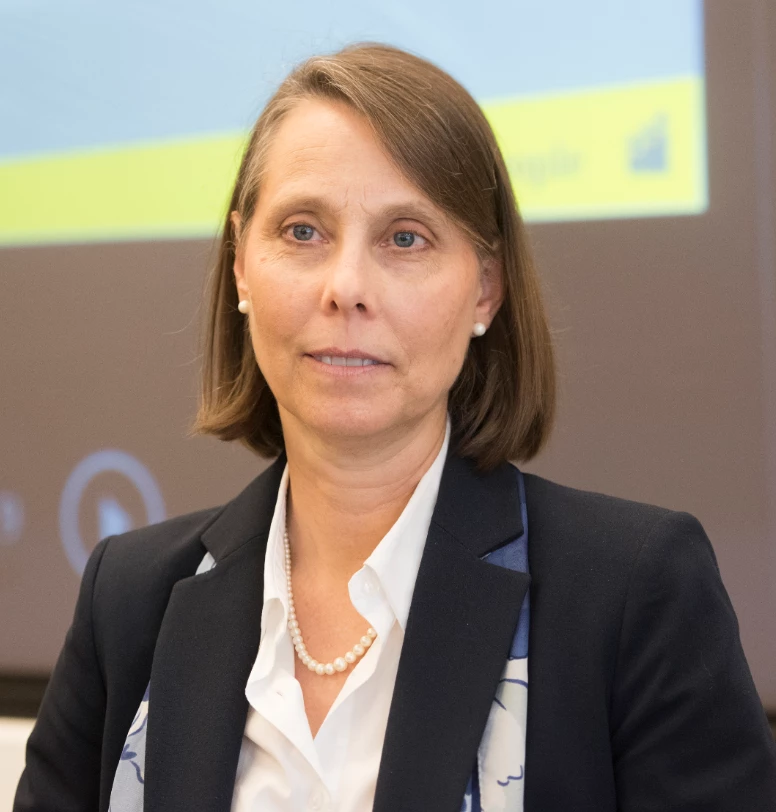 An e-voucher shop in Cox's Bazar administered by WFP
An e-voucher shop in Cox's Bazar administered by WFP
Despite the challenges of hosting almost a million of the Displaced Rohingya Population (DRPs) since 2017, the government of Bangladesh together with its humanitarian and development partners have developed a robust system that has resulted in effective social service delivery for both the DRPs and the host community.
Strengthening systems
Earlier this year, I visited Cox’s Bazar where I witnessed first-hand how the World Bank’s support is helping to strengthen health, education, and social protection systems. In the health sector for example, the Severe Acute Respiratory Infection, Isolation and Treatment Center (SARI ITC) with an in-house laboratory, serving the needs of COVID-19 positive patients suffering from moderate to severe symptoms, x-ray facility, and oxygen generator is helping address the immediate impacts of COVID-19. This is paired with a strong vaccination campaign with 83 percent of the population older than 18 years and 87 percent of children aged 12 to 17 years have been vaccinated with two doses. Primary health centers are providing out-patient services for reproductive, maternal, newborn, and child health together with nutrition, family planning mental health, and psychosocial support. The One Stop Crisis Cell (OCC), in a sub-district hospital, offers prevention and response services with referral for gender-based violence (GBV). With the establishment of the OCC, the uptake of services by the survivors of GBV have increased.
Finally, Mohammed Ishak’s experience tells a wider story of how partnership with government and humanitarian actors are helping build resilience and provide basic needs of the DRPs. Mohammed the picks up his family’s monthly groceries at the e-voucher shop administered by the WFP. The e-voucher shop serves 4,000 households within a 1 square kilometer catchment area. The shop uses blockchain tracking for its supplies and a “SCOPE” card to identify households and manage their finances , while offering users a fully digitalized service. The orderly process runs like a fine-tuned clock, providing a dignified and hassle-free experience to people like Mohammed. The World Bank looks forward to the partnership between World Food Programme (WFP) and the Ministry of Disaster Management & Relief under the Safety Net Systems for the Poorest Project, which will provide households with temporary work, and payments via the SCOPE card to be redeemed at the e-voucher shops.
Supporting host communities
The experience of Jannatul Ferdous, a local resident of Cox’s Bazar, who had dropped out of school in the 9th grade, has been able to benefit from the second Reaching Out of School Children (ROSC II) project which is assisting beneficiaries in the host communities develop new skills critical to economic empowerment. For Jannatul, this means training as a seamstress and using the income earned from her small sewing business to get her education back on track. She will soon take the Secondary School Certificate (SSC) exam and hopes to continue with her higher education. Like Jannatul, there are many other beneficiaries of the ROSC II project, both from the Rohingya and the host communities, who are now getting more learning opportunities.
Partnerships matter
These achievements are not without its challenges. Health facilities can easily be overwhelmed, as was the case during the usually high outbreak of dengue fever this year. Similarly, earlier this year, when a fire broke out, it led to 70 beds in the SARI ITC being destroyed. It highlights the degree of vulnerability and the risks that continue to constrain service delivery efforts.
The close collaboration between the government and partners will continue to be crucial in developing and sustaining critical service delivery systems for both the DRPs and the host communities. The provision of family planning services at the Camp 3 primary health care center, which I also had the chance to visit, is a terrific example of how partnerships can lead to beneficial results – with the government providing the facility while UN agencies like International Organization for Migration, United Nations Population Fund, World Health Organization, United Nations Children’s Fund (UNICEF) and the World Bank crowdsourcing the provision of equipment, technical assistance, and renovation support. The DRPs and the host communities' lives are being positively impacted as a direct result of this support from The World Bank.
I am hoping to talk to more people like Jannatul and Mohammed in the future to continue to gauge our impact on the ground.



Join the Conversation